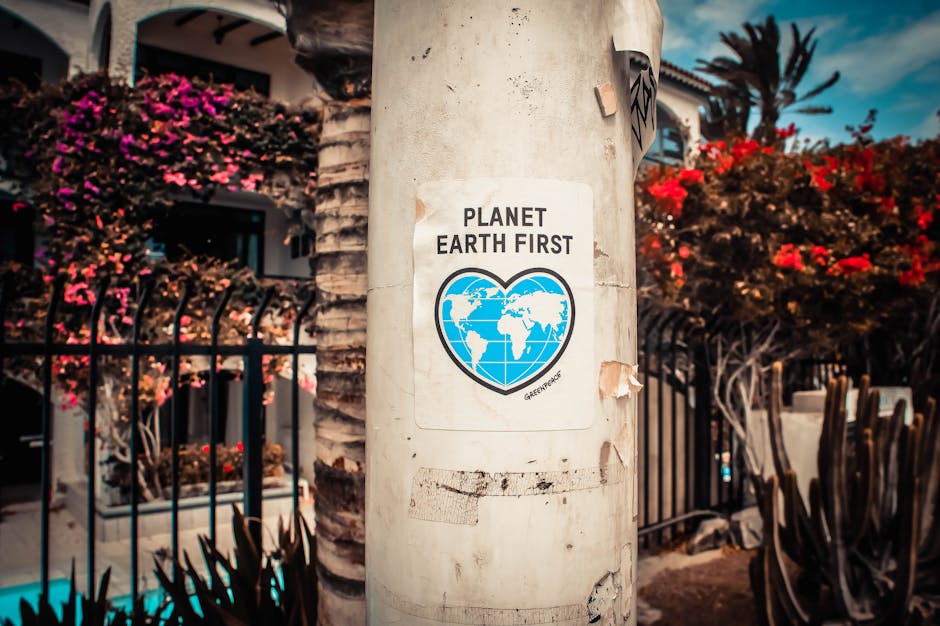 Photo from Unsplash
Photo from Unsplash
Originally Posted On: https://bippermedia.com/sponsored-content/bugging-out-for-earth-day-how-insects-play-a-vital-role-in-celebrating-and-protecting-our-planet/
As Earth Day approaches, it’s time to acknowledge the unsung heroes of our planet’s ecosystem: insects. While often overlooked or even maligned, these tiny creatures play a crucial role in maintaining the delicate balance of our environment. From pollination to decomposition, insects contribute in numerous ways to the health and well-being of our planet. In this article, we’ll explore the vital role insects play in celebrating and protecting our planet, highlighting their importance in biodiversity, agriculture, and environmental conservation.
The Buzz about Pollination
One of the most well-known roles of insects, particularly bees, is pollination. Bees, along with other pollinators like butterflies and certain species of flies, play a pivotal role in the reproduction of flowering plants. As they move from flower to flower in search of nectar, these insects inadvertently transfer pollen, facilitating the fertilization process. This process is essential for the production of fruits, vegetables, and seeds, making insects indispensable to agricultural ecosystems and food production worldwide.
Nature’s Cleanup Crew
Insects are also nature’s cleanup crew, playing a vital role in the decomposition of organic matter. From dead plants to animal carcasses, insects like beetles, ants, and maggots are efficient scavengers, breaking down organic material and returning essential nutrients to the soil. This process not only helps to maintain soil fertility but also plays a crucial role in nutrient cycling and ecosystem health.
Pest Control Partners
While some insects are considered pests due to their impact on crops and human health, many insects serve as natural pest control agents. Ladybugs, lacewings, and parasitic wasps, for example, are voracious predators of aphids, caterpillars, and other agricultural pests. By preying on pest species, these beneficial insects help to keep populations in check, reducing the need for chemical pesticides and promoting sustainable agriculture practices.
Indicator Species for Environmental Health
In addition to their direct contributions to ecosystems, insects also serve as important indicator species for environmental health. Changes in insect populations can provide valuable insights into broader ecological trends, including habitat loss, pollution, and climate change. For example, declines in bee populations have been linked to pesticide exposure, habitat destruction, and climate change, signaling broader environmental challenges that require urgent attention.
Conservation Concerns
Despite their importance, many insect species are facing significant threats due to human activities. Habitat loss, pesticide use, pollution, and climate change are putting immense pressure on insect populations worldwide. Insects are particularly vulnerable to environmental changes due to their small size, rapid reproductive rates, and specialized ecological niches. As a result, conservation efforts aimed at protecting insect biodiversity are crucial for maintaining the stability of ecosystems and safeguarding the services they provide.
Celebrating Insect Diversity
Earth Day provides an opportunity to celebrate the incredible diversity of insect life on our planet. From dazzling butterflies to industrious ants, insects come in a vast array of shapes, sizes, and colors, each with its unique role to play in the web of life. Citizen science initiatives like BioBlitz events encourage people of all ages to get involved in insect identification and monitoring, contributing valuable data to scientific research and conservation efforts.
Actions for Conservation
As individuals, there are several actions we can take to support insect conservation and protect their habitats:
1. Plant native flowering plants to provide food and habitat for pollinators.
2. Reduce or eliminate the use of chemical pesticides and fertilizers in your garden.
3. Create insect-friendly habitats, such as bee hotels and butterfly gardens.
4. Support organizations and initiatives focused on insect conservation and habitat restoration.
5. Educate others about the importance of insects and the threats they face.
By taking these actions, we can all play a part in safeguarding the invaluable contributions of insects to our planet’s health and biodiversity.
Learn More With Bubbles and Friends
Insects may be small, but their impact on our planet is immense. From pollination and decomposition to pest control and indicator species, insects play a vital role in maintaining the health and resilience of ecosystems worldwide. As we celebrate Earth Day, let us recognize the importance of insects in protecting our planet and take action to support their conservation. By working together to preserve insect biodiversity and habitat, we can ensure a sustainable future for generations to come. So, let’s bug out for Earth Day and show our appreciation for these essential creatures that keep our world buzzing with life.Have fun learning about the earth’s creatures with the Bubbles and Friends YouTube channel!













